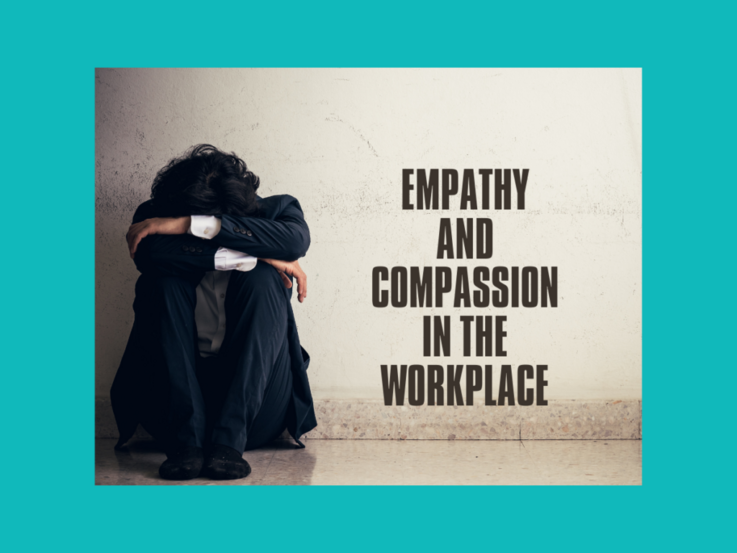Empathy and Compassion in the Workplaces
What is Empathy?
Empathy is defined, by Cambridge Dictionary, as “the ability to share someone else’s feelings or experiences by imagining what it would be like to be in that person’s situation.”
So, shouldn’t the question “how are you” give you the basis for empathy? That is if you cared to listen to the answer.
A CNBC article, published in March 2019, claims that Harvard researchers say successful people stopped asking “how are you?” when making small talk. The article talked about how to open an engaging conversation.
Life and times have turned so fast that we have reduced this phrase from a caring angle to a standard greeting. Many times you would hear people ask “how are you?” at checkout counters and never see them look at the person in the face and wait for an answer. We, on the other hand, wouldn’t want to hold up the line so we say, “Fine, thanks.”
I would like to believe that Covid changed our perspective, so now we really mean it when we ask people how they are, and would like to know how they are doing, and coping, and then take time to listen to what they would have to say.
In your workplaces, have you noticed how people ask how you are doing? Are you asked more often now? Did people (especially your managers) ask and really listen to your answer? Do you reply generously or still give that curt, “Fine, thanks” answer?
“How are you” is the same as asking, “how are you coping?” It is an empathic question. However, listening to the answer is the second-best thing. What you will do after is the best thing and will complete the cycle, ASK-LISTEN-ACT.
What is Compassion?
Cambridge Dictionary defines compassion as “a strong feeling of sympathy and sadness for the suffering or bad luck of others and a wish to help them.”
Merriam-Webster defines compassion as “sympathetic consciousness of others‘ distress together with a desire to alleviate it.”
Between the two, my persuasion is with Merriam-Webster. However, let me share my definition of compassion.
Compassion, for me, is empathy in action. What you do with the information that you receive will define you. Wishing to help or desiring to alleviate distress does not complete the action.
When you text a peer to ask how he is doing because he has been quiet, and he said he has been in bed for days nursing a fever, what do you do with that information? The next thing you do will spell compassion or apathy.
Compassion is sending him food, covering for him at work, offering to buy him what he needs like medicine, sending him groceries, checking on him regularly until he recovers, especially when he is living on his own, which is basically the norm these covid days. People can be isolated for days.
Empathy is feeling how to be in another person’s shoes, while compassion involves actions showing the other person that you care about them in their situation.
That’s my definition.
Why Empathy and Compassion are Important in the Workplace?
According to the sixth annual 2021 State of Workplace Empathy study of Businessolver, 68% of CEOs feel they will be less respected if they show empathy in the workplace.
Surveys show the following effects of empathic leadership on employees:
- Empathy boosts productivity
- Reduces employee attrition rate
- Drives employee engagement
- Reduces workplace burnout levels
- Fosters collaboration and inclusion
- Boosts positive relationships
- Promotes innovative mindset
With all those positive effects of empathy on employees, how come CEOs feel threatened of being disrespected?
When a situation happens at work, and the leader holds off judgement, listens to all sides of the story, and puts himself in his team’s shoes, he shows he is empathetic. When he defers judgement and gives his team a chance to resolve and correct the situation, he shows he is compassionate.
Perspective-taking is another skill all leaders need to cultivate.
TAKEAWAY
There is no choosing between empathy and compassion because one cannot and should not exist without the other. Compassion starts with empathy, and empathy should end with compassion.
Empathy may get you through people’s hearts, but compassion will keep you in their hearts.
Elevate the quality of your greeting.
Next time you ask someone, “how are you,” take time to listen to what he has to say. Better yet, look him in the eye and wait until he tells you his story.
« Back